Have you ever felt obligated to maintain close ties with someone just because you share DNA? What if I told you that your mental and emotional well-being is more important than fulfilling familial expectations? This is a lesson I’ve had to learn through a lot of personal growth and reflection, and I’m here to share my journey with you.

Growing up, I was surrounded by the idea that family means unconditional love and support. It’s a beautiful ideal, but the reality can be more complicated. Sometimes, the very people who should be our greatest supporters are the ones who don’t understand our need for boundaries. The expectation that family members should have unrestricted access to your life solely because of shared DNA is deeply ingrained and incredibly difficult to navigate.
The Power of Personal Boundaries
For me, setting boundaries wasn’t about being rebellious or shutting people out. It was about creating a safe space for myself to heal, grow, and thrive. Your mental and emotional health are just as important as your physical well-being, and boundaries are essential for protecting that. I remember a specific instance where I had to establish firm boundaries with a close family member who consistently disrespected my privacy. It was tough, but ultimately, it allowed me to regain control over my life and well-being.
About ten years ago, I made a significant decision to move away from the area where my family lived. This wasn’t just a physical move; it was an emotional and mental one as well. I needed to create space from the constant negativity and hurtful comments that had become a norm. I unfollowed, unfriended, and blocked certain family members, including my sister and brother, to protect my peace. This wasn’t an easy decision, but it was necessary for my mental health.

One of the toughest parts about setting boundaries with family is dealing with the misunderstandings and backlash that can come with it. Family members might feel entitled to know every detail of your life, and they might see your boundaries as a rejection or a sign of disloyalty. This can lead to guilt-tripping and emotional manipulation, which is tough to handle. Some family members have never understood why I put up these boundaries and have been unhappy with them ever since. I’ve felt that guilt myself, wondering if I was being too harsh or unfair. But here’s the thing: setting boundaries is an act of self-care. It’s about protecting your peace and making sure that your environment supports your well-being.
Healthy relationships are built on respect and trust, not just shared genetics. If someone consistently disrespects your boundaries, you don’t owe them access to your life just because they’re family. Boundaries also help break cycles of dysfunction that often run deep in families. By setting boundaries, you’re not only protecting yourself but also paving the way for a healthier environment for future generations. It’s a difficult decision, but it’s necessary for creating a positive and supportive environment.
If you ever feel judged for setting boundaries, remember you’re not alone. It’s okay to prioritize your mental and emotional health. Surround yourself with people who genuinely care for and uplift you. Creating a life where you feel safe and valued isn’t just acceptable; it’s essential.
Choosing Your Circle: The Family You Create
It’s important to distinguish between the family you’re born into and the family you choose. The family you’re born into, the one with whom you share DNA, often comes with a sense of societal obligation. This can tie you to people for life, even if those relationships are toxic. You don’t get to choose these family members, and sometimes, their behavior can be harmful to your well-being.
On the other hand, the family you choose consists of people you decide to surround yourself with—those who genuinely care for you, respect your boundaries, and uplift you. These are the relationships you cultivate based on mutual respect, trust, and understanding. They are the ones who support your growth and well-being without any strings attached.
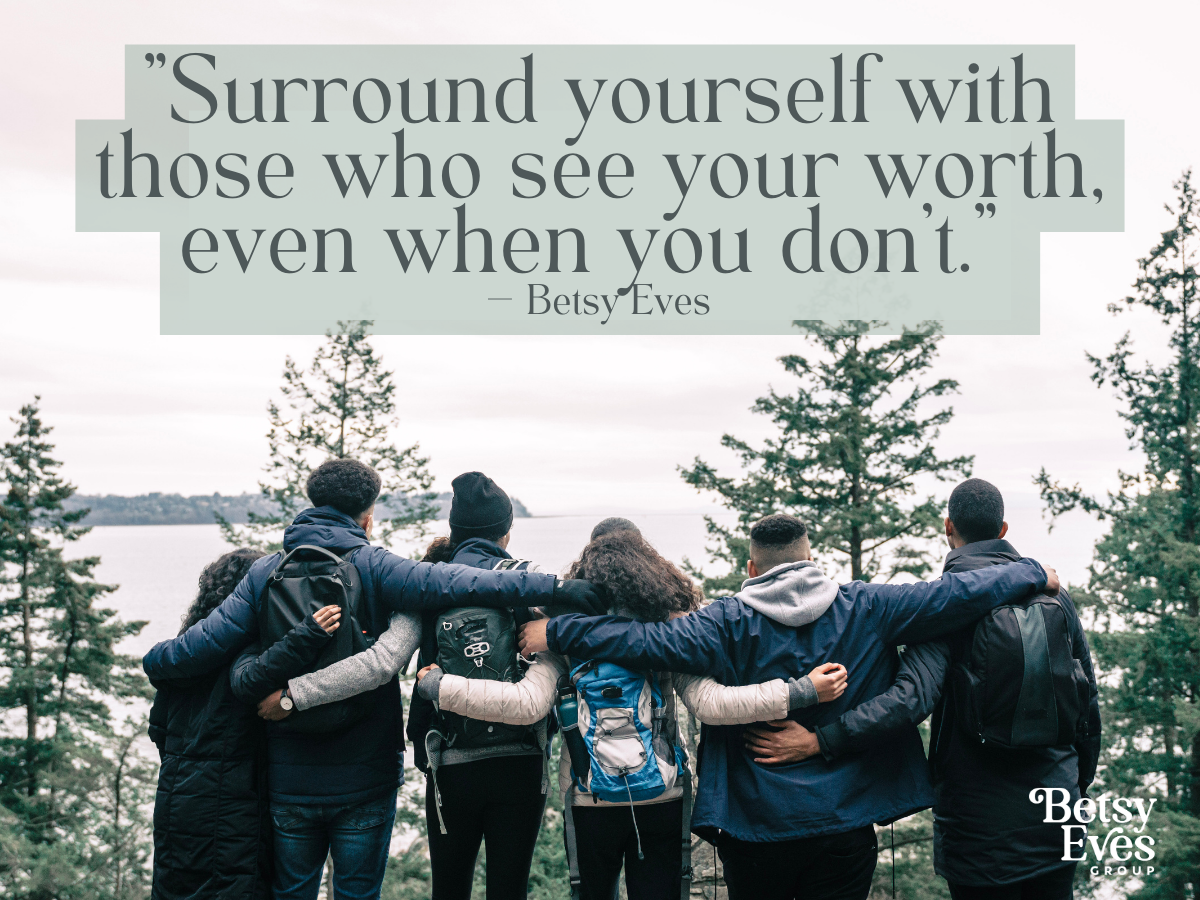
Recognizing this distinction is crucial for your mental and emotional health. It allows you to understand that while you may have obligations to your biological family, your primary obligation is to yourself and your well-being. You have the right to set boundaries and choose the people who are positively involved in your life.
Through my journey, I’ve learned that prioritizing self-care and protecting my mental health is not just okay—it’s essential. Setting boundaries, even with family, has been one of the most challenging yet liberating decisions I’ve made. It has allowed me to create a healthier, more supportive environment for myself and those around me.
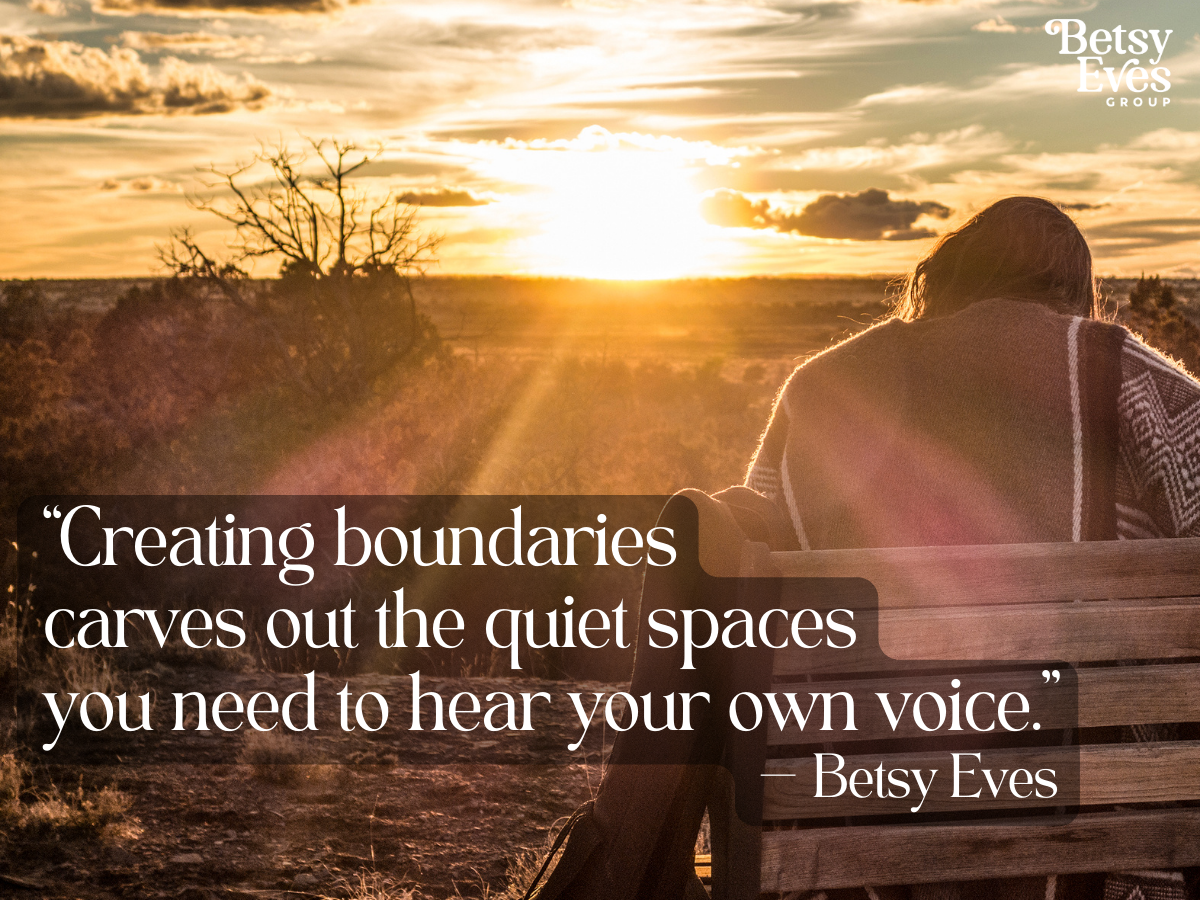
Remember, the only obligation you truly have is to yourself. You have the right to protect your peace, to prioritize your well-being, and to build the life you deserve. Don’t let guilt or societal expectations hold you back. Your mental and emotional health matter, and you deserve to surround yourself with people who respect and uplift you. Stand firm in your boundaries, and never forget that taking care of yourself is the most important commitment you can make.
For more insights on how to cope with difficult family dynamics, check out Military Caregiver Anxiety: Finding Your Anchor on Betsy Eves Group. If you’re looking for delicious ways to de-stress, visit JavaCupcake’s comforting recipes.
8 Reasons Why Sharing DNA Doesn’t Mean You Owe Them Anything
- Your Well-Being Comes First
Your mental and emotional health are more important than fulfilling familial expectations. Boundaries protect you from harmful behavior, even if it comes from family.
Reflective Question: What boundaries could you set today that would help protect your peace? - Relationships Need Respect and Trust
Healthy relationships rely on mutual respect and trust, not just shared DNA. If these elements are missing, you don’t owe them your time or energy.
Reflective Question: Which relationships in your life are built on respect and trust? - Entitlement Isn’t Obligation
Just because someone shares your DNA doesn’t mean they’re entitled to know every detail of your life. Your privacy is your right.
Reflective Question: How can you assert your right to privacy in your family relationships? - Emotional Safety Is Crucial
You have the right to create a safe space for yourself to heal, grow, and thrive. Boundaries help ensure your emotional safety, regardless of familial ties.
Reflective Question: What steps can you take to ensure your emotional safety within your family? - DNA Doesn’t Guarantee Understanding
Even those who share your DNA might not understand your need for boundaries. Shared genetics don’t automatically mean they’ll support or understand you.
Reflective Question: How can you communicate your boundaries more clearly to those who might not understand? - Seek Real Support, Not Just Tolerance
Surround yourself with people who genuinely care and uplift you. Sharing DNA doesn’t mean you should settle for mere tolerance.
Reflective Question: Who in your life genuinely supports and uplifts you? - Break Free from Dysfunction
Setting boundaries helps break cycles of dysfunction that can run in families. This is essential for creating a healthier future for yourself and future generations.
Reflective Question: What cycles of dysfunction in your family can you break by setting boundaries? - Personal Growth Matters
Boundaries are necessary for your personal growth. They allow you to create a life where you feel safe, valued, and able to thrive.
Reflective Question: How have setting boundaries contributed to your personal growth?

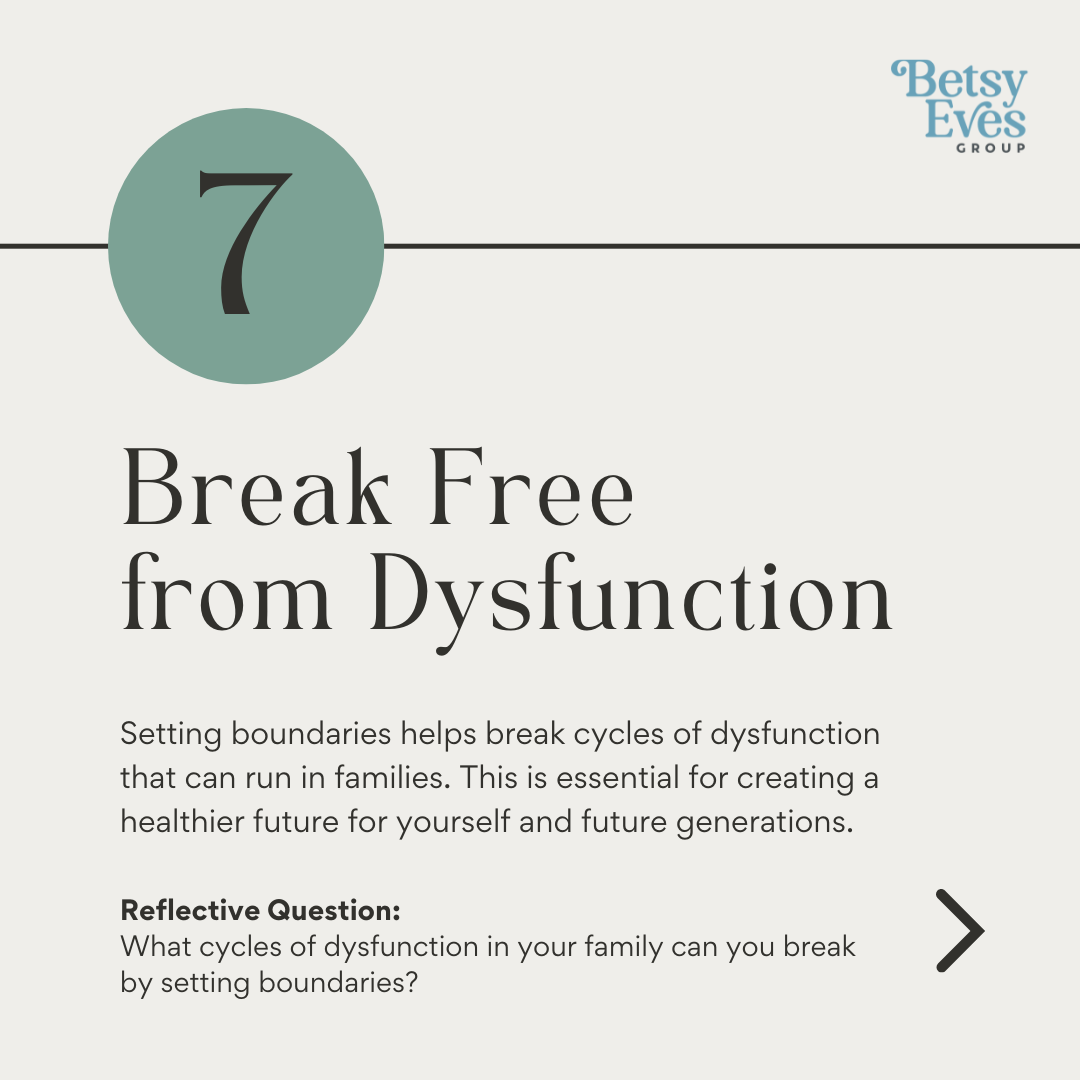
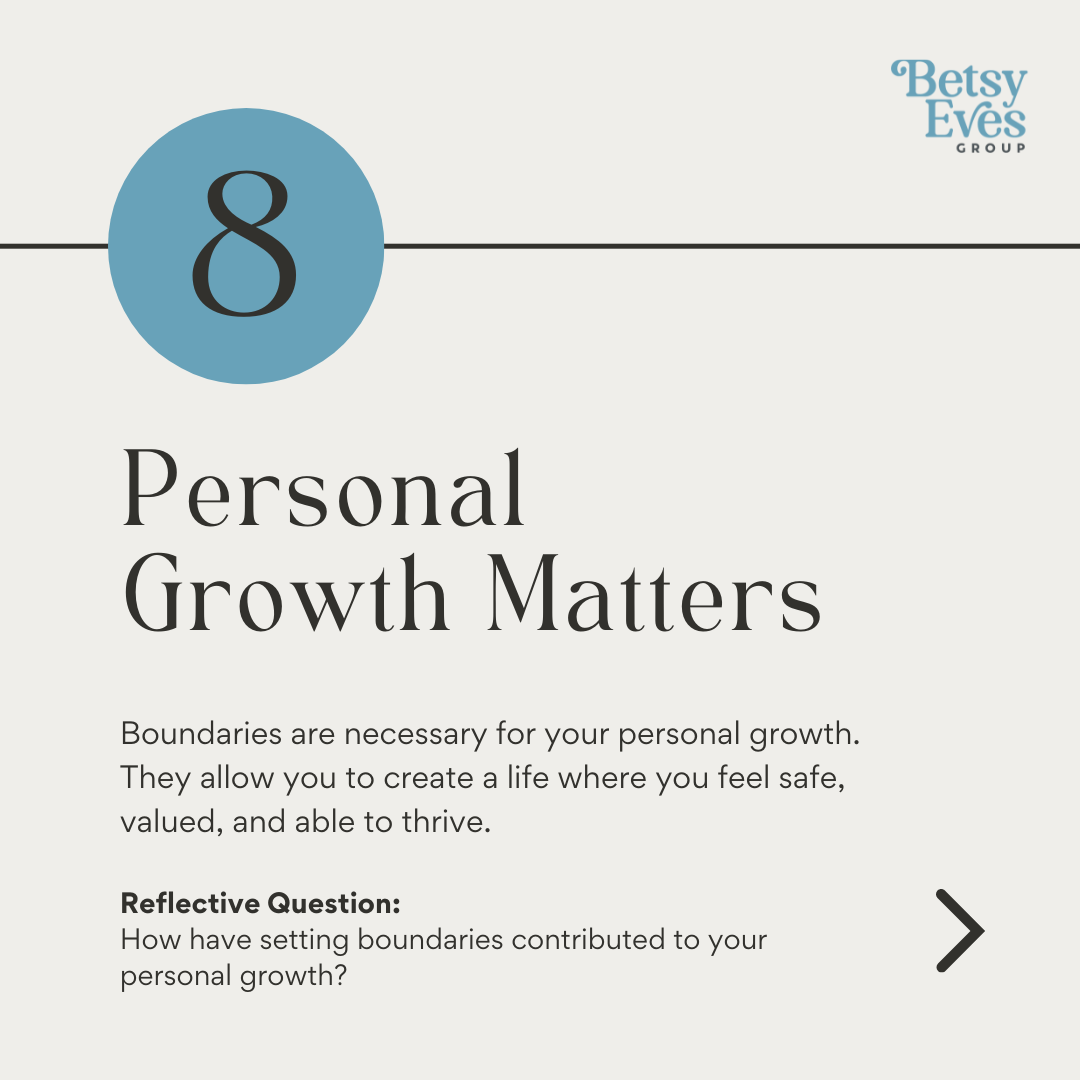
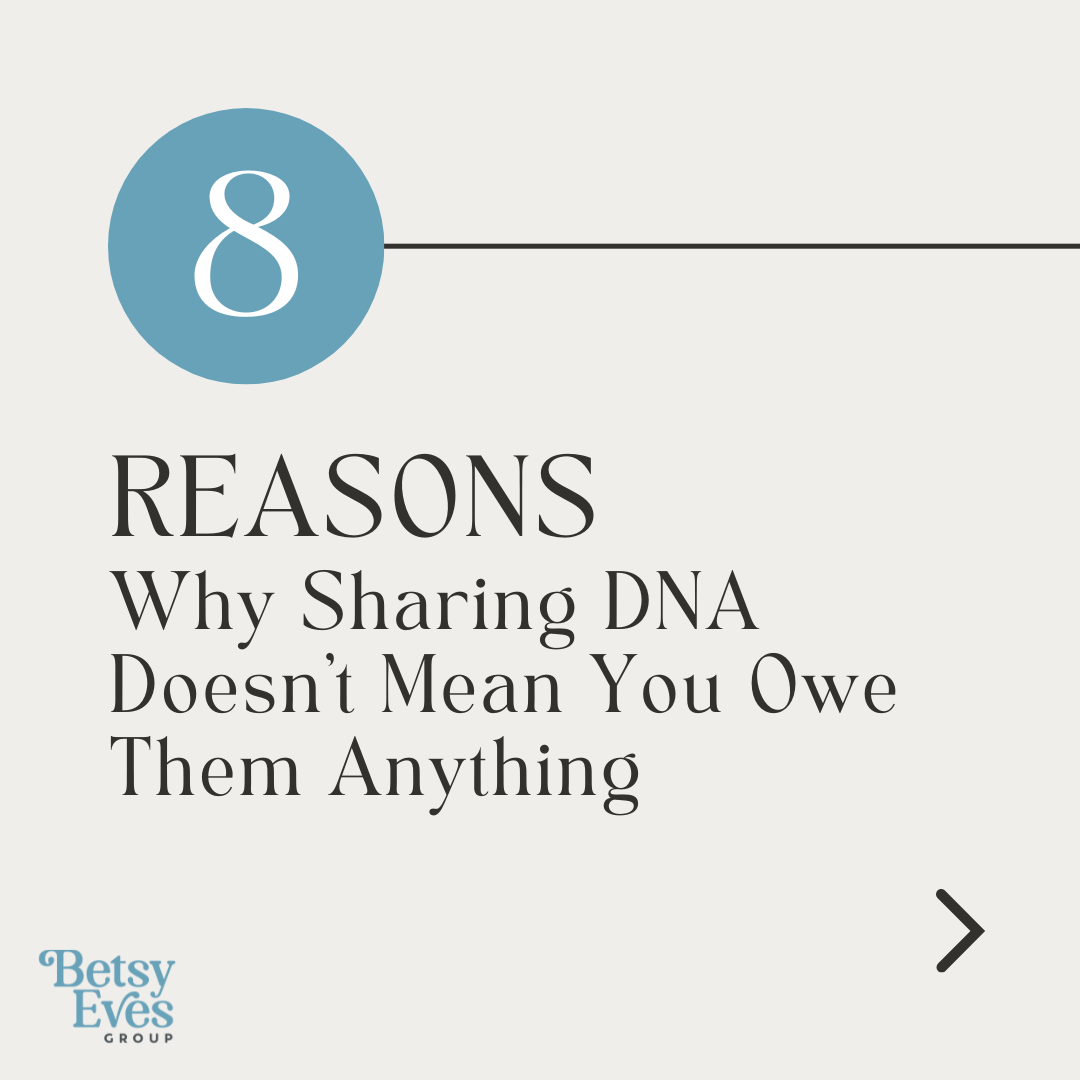
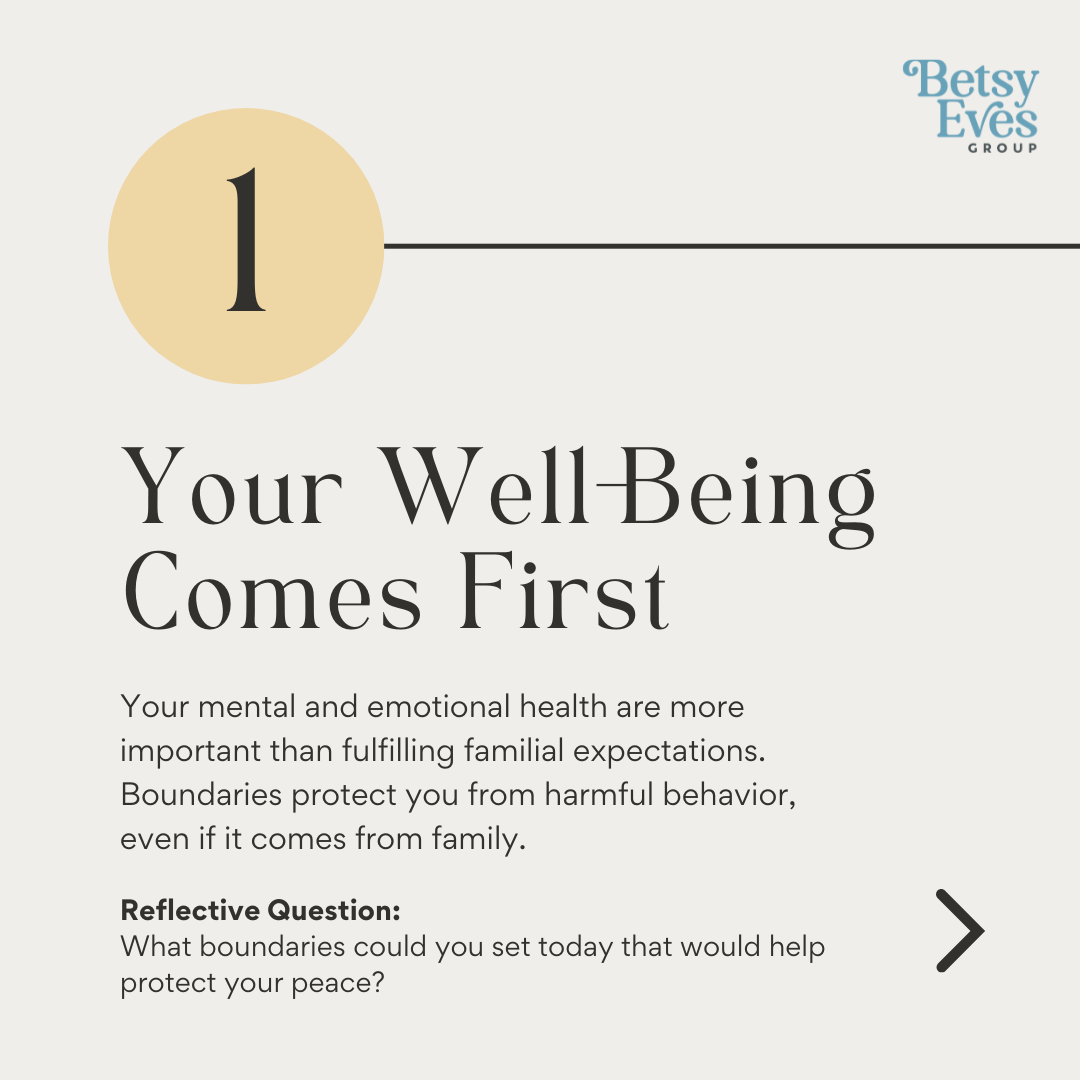
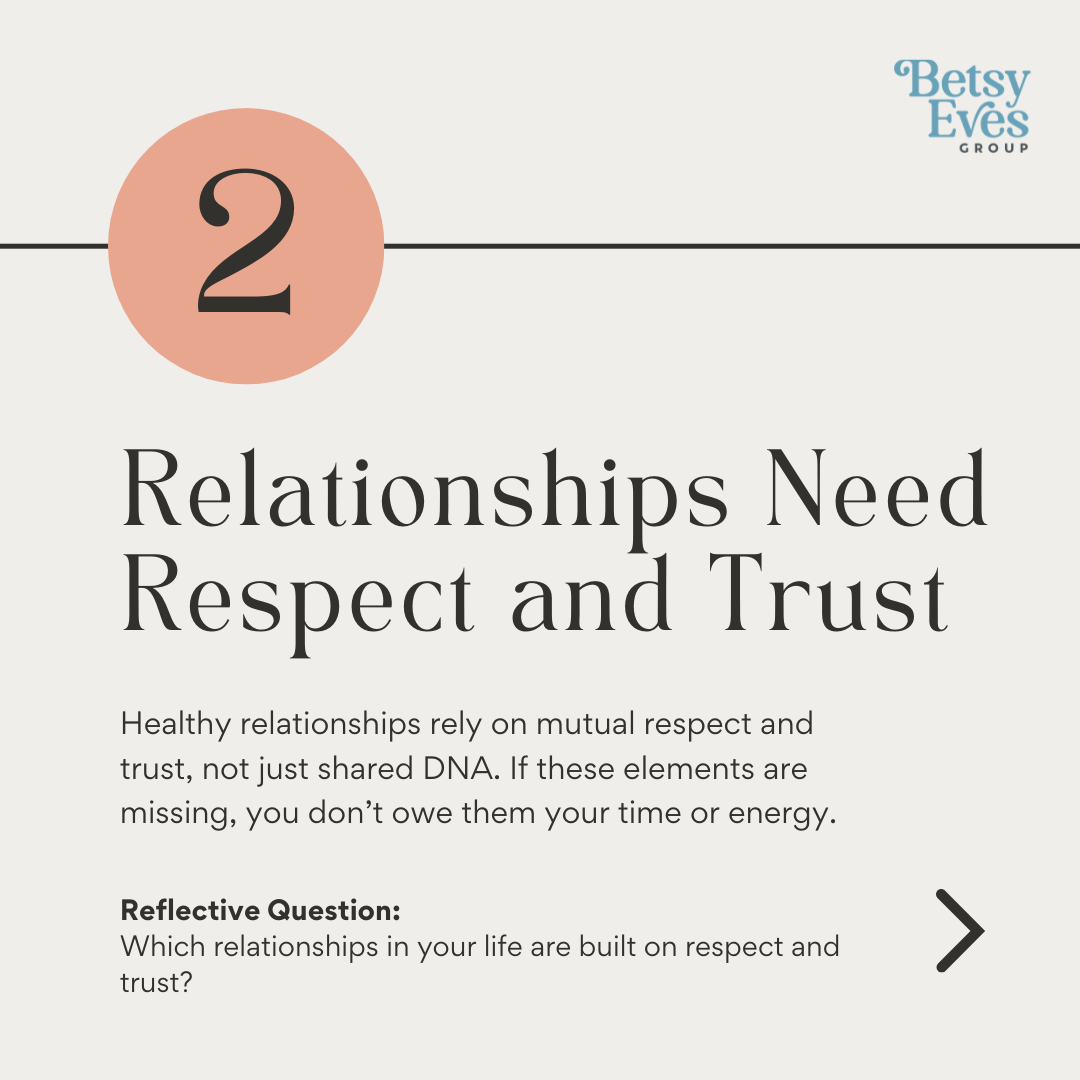
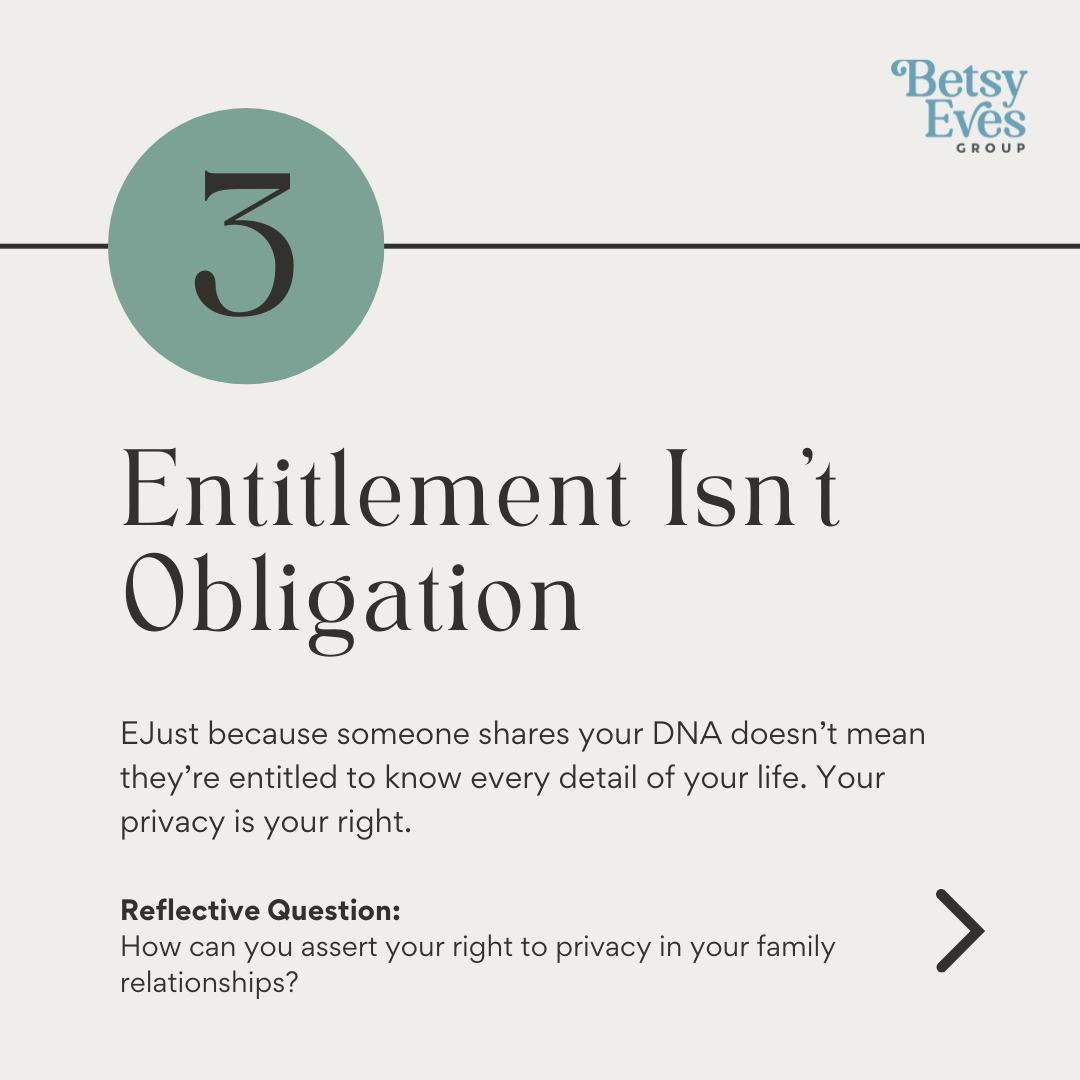
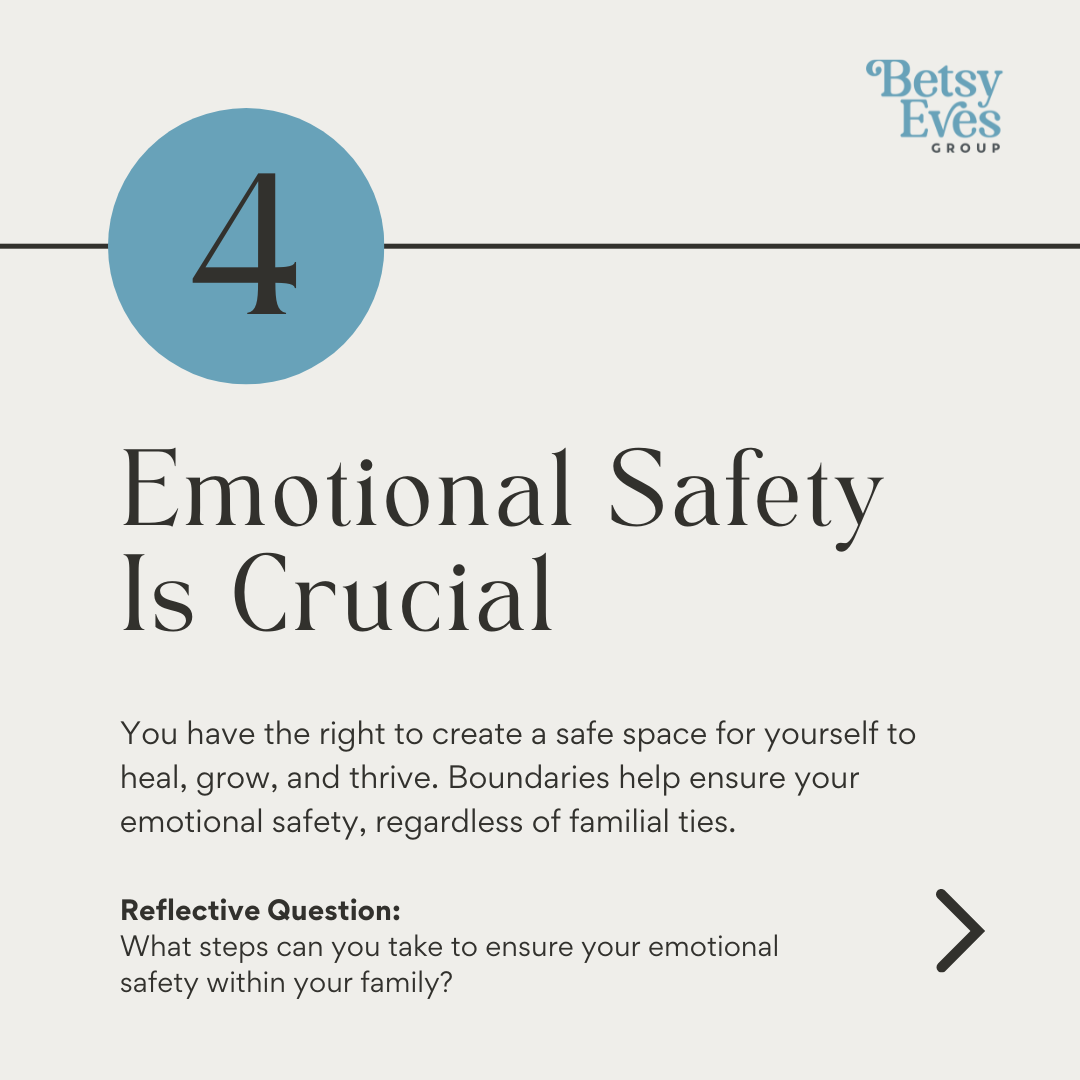
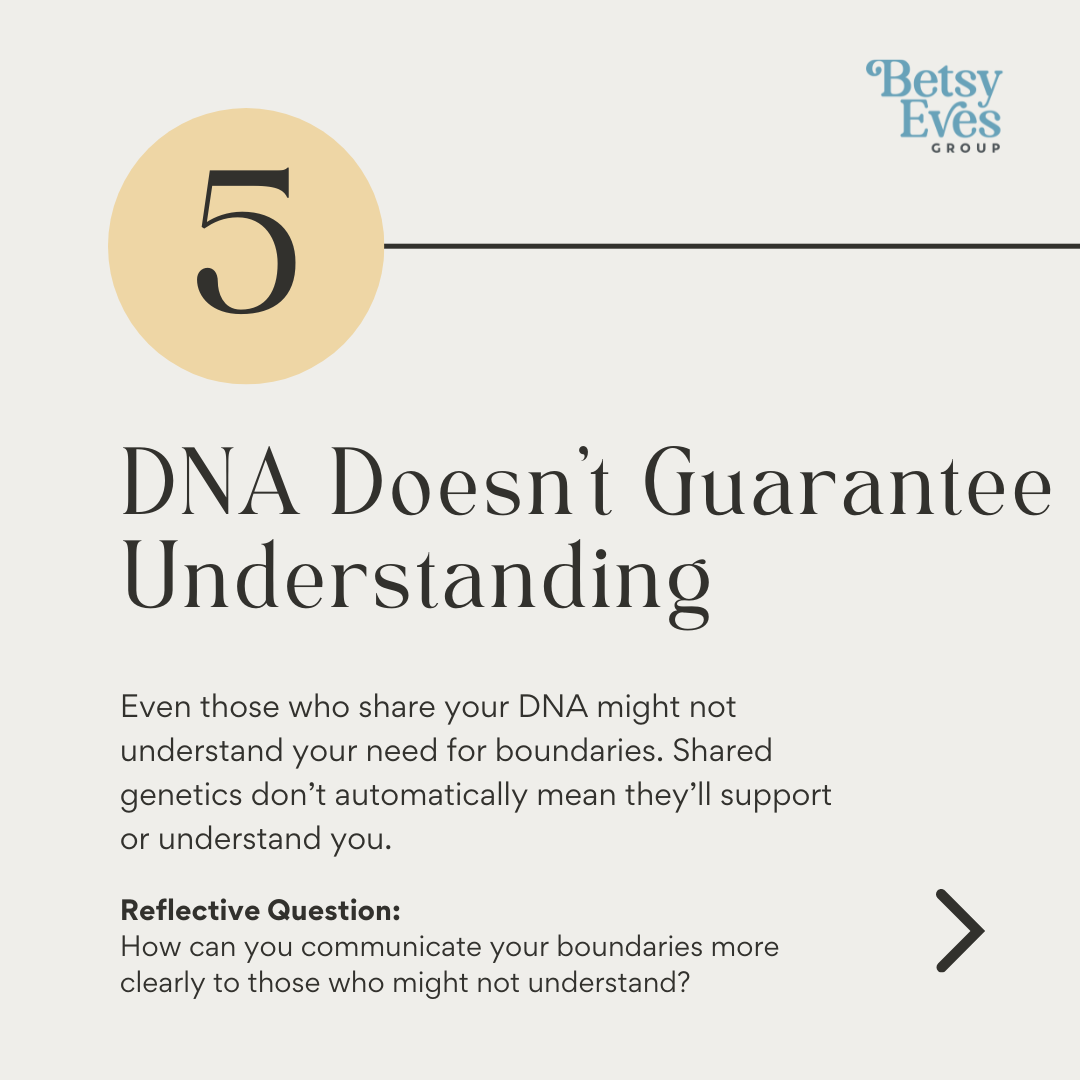
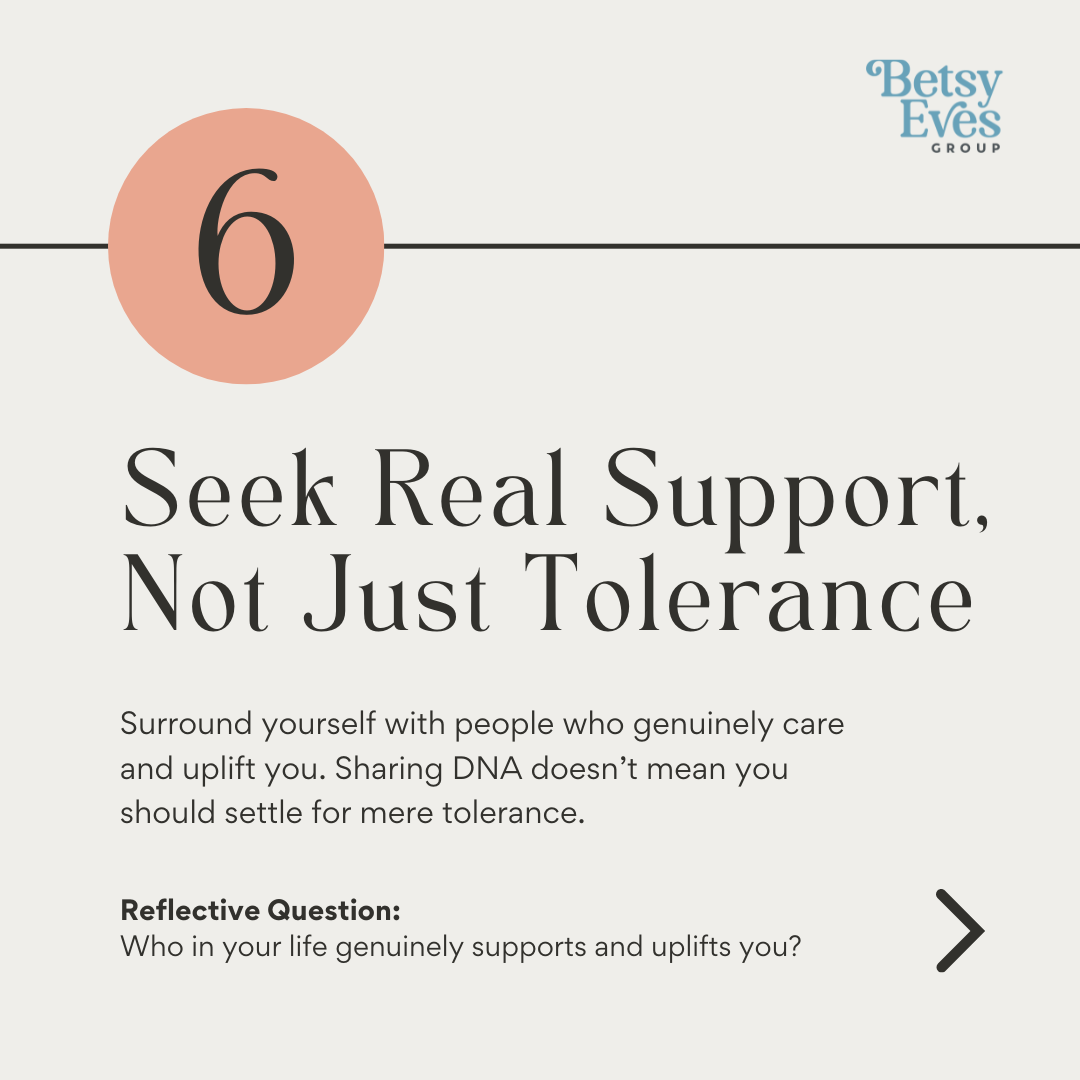

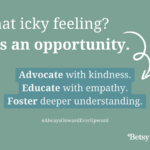
Thank you for your vulnerability and strength in sharing your story, Betsy. It speaks value for those of us who have dealt with crippling family relationships for years. The ability to effectively create healthy boundaries can be a life-changer. I appreciate you!